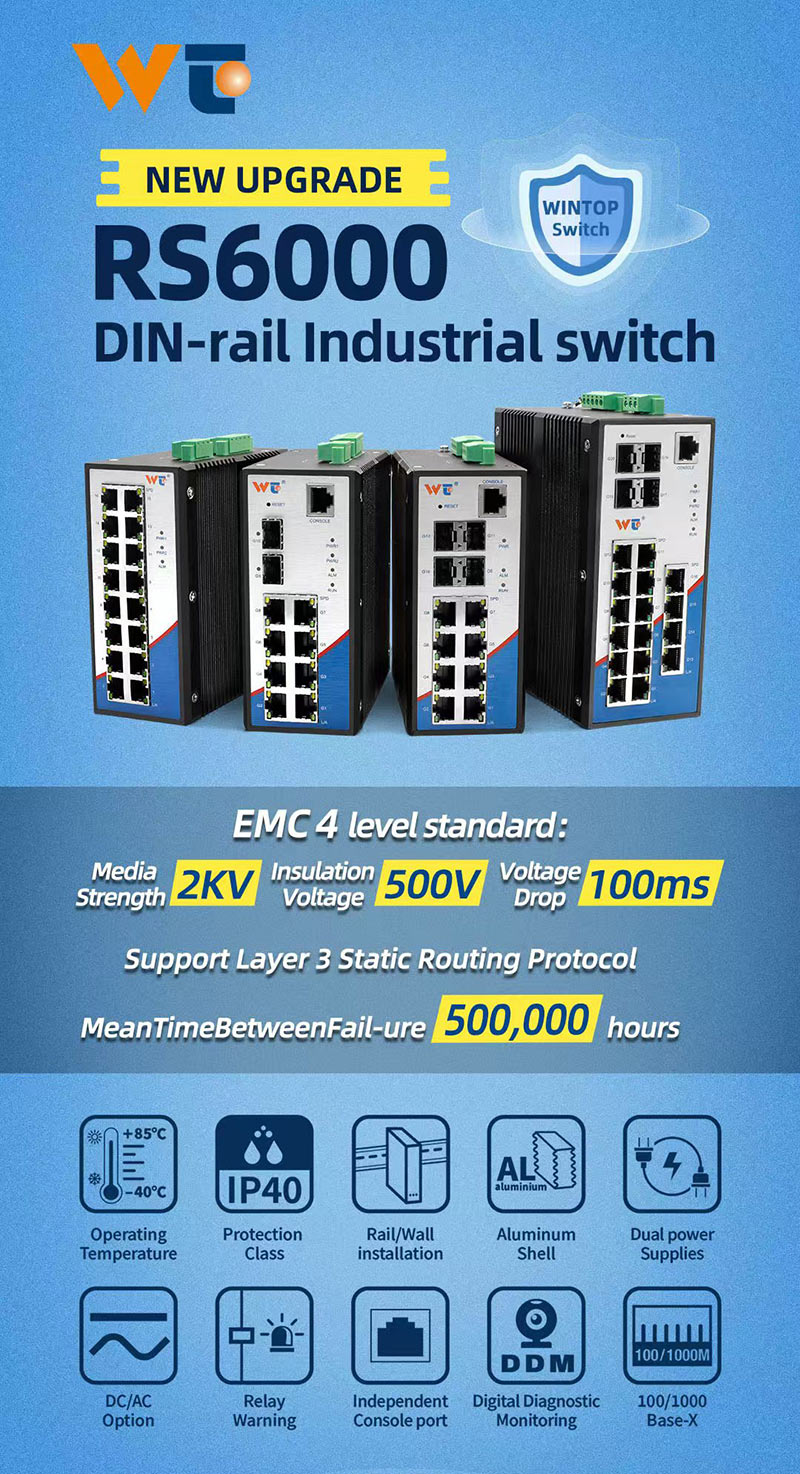Industrial Ethernet Switch Manufacturers: Pioneers of Robust Connectivity
In the fast-evolving landscape of industrial automation and control, the need for reliable and robust network infrastructure cannot be overstated. Industrial Ethernet switches play a pivotal role in ensuring seamless connectivity and communication across diverse industrial environments. This article delves into the world of industrial Ethernet switch manufacturers, highlighting their significance, technological advancements, and the crucial criteria that distinguish top-tier manufacturers from the rest.
The Role of Industrial Ethernet Switches
Industrial Ethernet switches are specialized networking devices designed to withstand the harsh conditions typically found in industrial settings, such as extreme temperatures, humidity, and vibrations. These switches facilitate the connection and communication of various industrial devices, ensuring efficient data transfer and operational continuity. Unlike their commercial counterparts, industrial Ethernet switches are built with ruggedized components, enhanced security features, and advanced redundancy mechanisms to ensure uninterrupted service.
Key Features of Industrial Ethernet Switches
- Rugged Design: Industrial Ethernet switches are housed in robust enclosures that protect them from environmental hazards such as dust, moisture, and extreme temperatures. This rugged design is essential for maintaining performance and reliability in harsh industrial conditions.
- Enhanced Security: Security is paramount in industrial networks. Leading manufacturers incorporate advanced security features, including Access Control Lists (ACLs), Virtual Local Area Networks (VLANs), and encryption protocols, to safeguard against unauthorized access and cyber threats.
- Redundancy and Resilience: Industrial operations demand high availability and minimal downtime. Redundancy features such as Rapid Spanning Tree Protocol (RSTP), Ethernet Ring Protection Switching (ERPS), and hot-swappable components ensure continuous operation even in the event of a network failure.
- High Performance and Scalability: Industrial Ethernet switches are engineered to support high data throughput and low latency, critical for real-time applications. They also offer scalability to accommodate future network expansions, making them a long-term investment for industrial enterprises.
Leading Industrial Ethernet Switch Manufacturers
- Cisco Systems: Renowned for its innovative networking solutions, Cisco offers a comprehensive range of industrial Ethernet switches designed to deliver reliable performance in challenging environments. Cisco's switches are equipped with advanced features such as PoE (Power over Ethernet), enhanced security, and extensive management capabilities.
- Siemens: A global leader in industrial automation, Siemens provides robust and reliable Ethernet switches tailored for various industrial applications. Siemens' SCALANCE series is known for its high availability, network transparency, and flexible integration options.
- Moxa: Specializing in industrial networking solutions, Moxa's Ethernet switches are built to endure extreme conditions. Moxa emphasizes reliability and ease of use, offering products that support extensive management features, redundant power inputs, and versatile mounting options.
- Hirschmann (a Belden brand): Hirschmann's industrial Ethernet switches are recognized for their durability and advanced networking capabilities. With features like high port density, real-time data transmission, and industrial-grade security, Hirschmann caters to a wide range of industrial sectors.
- Phoenix Contact: Phoenix Contact offers a variety of industrial Ethernet switches designed to meet the rigorous demands of industrial automation. Their switches boast features such as extended temperature ranges, robust metal housings, and comprehensive diagnostic functions.
Selection Criteria for Industrial Ethernet Switches
When selecting an industrial Ethernet switch, several factors must be considered to ensure optimal performance and reliability:
- Environmental Tolerance: Assess the switch's ability to operate under the specific environmental conditions of your industrial setting. Consider temperature range, ingress protection (IP) rating, and resistance to electromagnetic interference (EMI).
- Network Requirements: Determine the required data throughput, latency, and bandwidth. Ensure the switch can handle the current and future network load.
- Security Features: Evaluate the switch's security capabilities, including support for VLANs, ACLs, and encryption protocols. Robust security is essential to protect industrial networks from cyber threats.
- Redundancy Mechanisms: Look for switches with built-in redundancy features to maintain network availability during failures. Features like RSTP, ERPS, and redundant power supplies are critical for uninterrupted operations.
- Management and Monitoring: Consider the ease of management and monitoring. Advanced management features, such as SNMP (Simple Network Management Protocol) support, web-based
